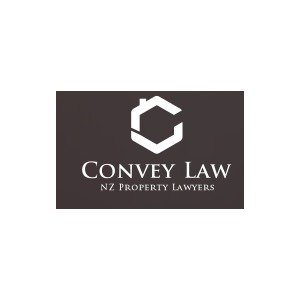Best Premises Liability Lawyers in New Zealand
Share your needs with us, get contacted by law firms.
Free. Takes 2 min.
Or refine your search by selecting a city:
List of the best lawyers in New Zealand
About Premises Liability Law in New Zealand
Premises liability law in New Zealand governs the responsibility of property owners to ensure their premises are safe for occupants and visitors. This legal area involves the duty of care owed by property owners or occupiers and the potential liabilities for accidents and injuries that occur on their property. Premises liability is an integral subset of tort law, focusing on responsibilities regarding the condition and maintenance of premises.
Why You May Need a Lawyer
There are several situations where individuals might require legal assistance regarding premises liability in New Zealand. These include:
- Personal injuries sustained due to hazardous conditions on someone else's property.
- Disputes over liability in cases where multiple parties might be responsible for hazardous conditions.
- Complications in insurance claims related to accidents on private or commercial properties.
- Legal issues arising from rental property conditions and tenant-landlord disputes.
- Commercial liability cases involving businesses with open premises to the public, like shops and restaurants.
Local Laws Overview
Premises liability in New Zealand is shaped by various legal frameworks, primarily formed by occupation law and health and safety requirements. Key aspects include:
- Occupiers' Liability Act: This act outlines the responsibility of property occupiers to ensure persons on the premises are protected from harm.
- Health and Safety at Work Act 2015: Provides a broad framework for maintaining safe work environments, which can extend to premises liability concerning workplace safety.
- Common Law: Principles developed through case law, which address negligence and the duty of care owed by property owners and occupiers.
Frequently Asked Questions
What is premises liability?
Premises liability refers to the legal responsibility that property owners have to ensure that their property is safe for visitors. This includes preventing injuries caused by unsafe conditions.
Who can file a premises liability claim?
Anyone who has been injured due to dangerous conditions on someone else's property may be able to file a premises liability claim, including tenants, customers, and invited guests.
What must be proven to win a premises liability case?
Typically, the injured party must prove that the property owner was negligent by not maintaining a safe environment, that the negligent condition led to an injury, and that the injury resulted in damages.
Are landlords responsible for injuries on their rental property?
Landlords may be liable for injuries that occur on rental property if they result from a failure to maintain the property or make necessary repairs within a reasonable time after being notified.
What types of conditions can lead to premises liability claims?
Common conditions include slippery floors, unsafe structures, inadequate maintenance, poor lighting, lack of security, and failure to warn of known hazards.
Does premises liability apply to trespassers?
Generally, property owners owe limited duties to trespassers, but they must refrain from willful or wanton conduct that could harm them. In some cases, if a property condition is particularly hazardous, owners may need to take preventive measures even with trespassers.
How are premises liability cases typically resolved?
These cases may be resolved before going to trial through negotiations, settlement agreements, or mediation. However, if an agreement is not reached, the case may proceed to court.
Can a business be held liable for an injury on its premises?
Yes, businesses must ensure safety for employees and customers. Failure to maintain safe premises can result in liability for any injuries that occur.
Is weather-related premises liability an issue in New Zealand?
Yes, premises liability cases can arise from weather conditions like rain or ice if the property owner does not take appropriate measures to mitigate risks such as slippery surfaces.
What role do insurance companies play in premises liability cases?
Insurance companies often handle claims on behalf of property owners and may negotiate settlements or provide legal defense in premises liability cases.
Additional Resources
Here are some resources that can provide further assistance or information about premises liability in New Zealand:
- New Zealand Law Society: Offers general legal guidance and resources for finding a lawyer.
- Accident Compensation Corporation (ACC): Provides insurance coverage and compensation for accidents in New Zealand, which may include certain premises liability claims.
- Citizens Advice Bureau New Zealand: Provides free, confidential advice on a wide range of issues, including premises liability concerns.
- Community Law Centres: Offer free legal help and information to those in need.
Next Steps
If you need legal assistance with a premises liability issue in New Zealand, consider taking the following steps:
- Document the incident thoroughly, including evidence such as photographs, witness statements, and medical reports.
- Consult with a premises liability lawyer to understand your rights and potential next steps.
- Contact your insurance provider to report the incident and start the claims process.
- Consider seeking advice from the additional resources listed above to gather more information and support.
Lawzana helps you find the best lawyers and law firms in New Zealand through a curated and pre-screened list of qualified legal professionals. Our platform offers rankings and detailed profiles of attorneys and law firms, allowing you to compare based on practice areas, including Premises Liability, experience, and client feedback.
Each profile includes a description of the firm's areas of practice, client reviews, team members and partners, year of establishment, spoken languages, office locations, contact information, social media presence, and any published articles or resources. Most firms on our platform speak English and are experienced in both local and international legal matters.
Get a quote from top-rated law firms in New Zealand — quickly, securely, and without unnecessary hassle.
Disclaimer:
The information provided on this page is for general informational purposes only and does not constitute legal advice. While we strive to ensure the accuracy and relevance of the content, legal information may change over time, and interpretations of the law can vary. You should always consult with a qualified legal professional for advice specific to your situation.
We disclaim all liability for actions taken or not taken based on the content of this page. If you believe any information is incorrect or outdated, please contact us, and we will review and update it where appropriate.
Browse premises liability law firms by city in New Zealand
Refine your search by selecting a city.

















